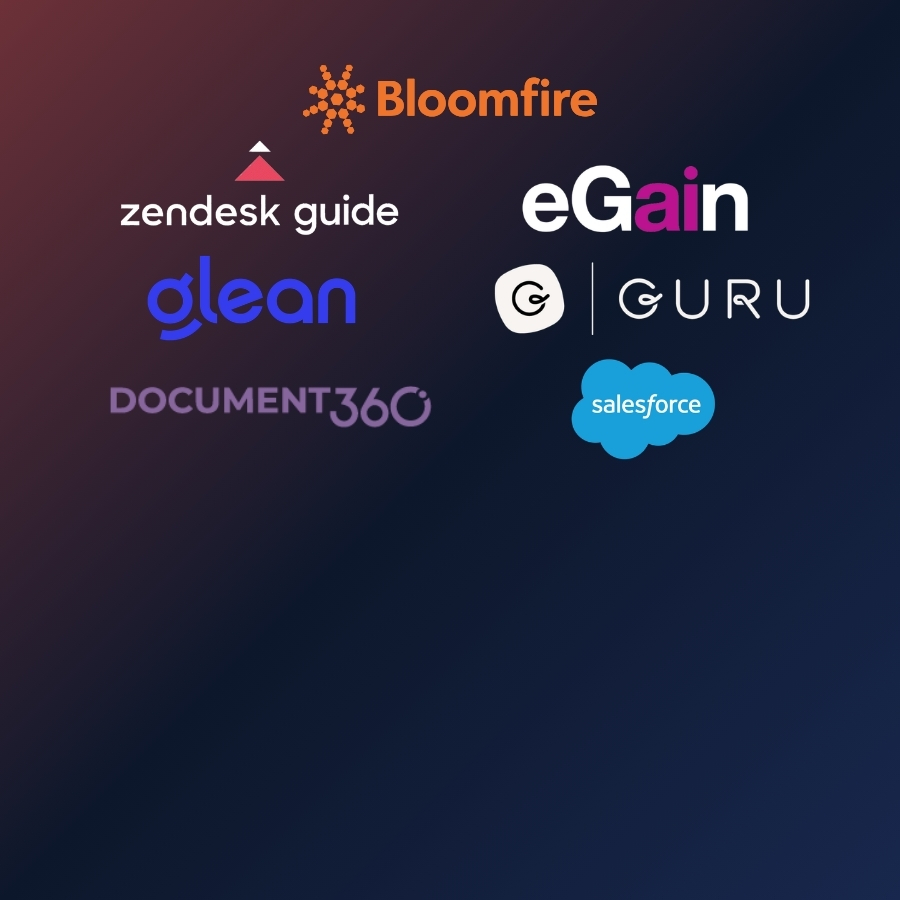How Knowledge Management Builds Business Resilience

Over the past few years, business leaders have guided their teams through a near-constant state of crisis. From pandemic-induced lockdowns and office closures to civil unrest, political turmoil, supply chain disruptions, and economic instability, we’ve faced one historical event after another. But while some companies have buckled under these challenges, other businesses have flourished.
Why do some companies succumb to unexpected obstacles while others navigate troubled waters easily, even in the same industry?
As it turns out, the secret to long-term survival is business resiliency. And if you want to ensure a prosperous future for your business, it’s something you’ll want to cultivate now.
Here’s what business resilience looks like and why knowledge management is the key to promoting resilience during uncertain times.
What is Business Resilience?
Business resilience is an organization’s ability to respond and adapt to changing environments and potential disruptions while protecting valuable assets—like its workforce, market share, and brand reputation. While some companies resist change and believe their old tried-and-true methods will pull them through any potential hardships, others develop foresight and commit to evolving and increasing flexibility.
Business resiliency is one of the best predictors of how well a company will survive challenges like economic slowdowns. If an organization takes a proactive approach by educating employees on handling various obstacles and providing resources that help employees share and expand their knowledge, they’ll be better prepared for the market’s ups and downs. But when business leaders refuse to evolve or acknowledge changes and trends, they put their company at a disadvantage and jeopardize their future.
How Preserving Knowledge Drives Business Resilience
So, how can you foster business resilience within your organization? One of the first steps you can take is to protect one of your most valuable assets: your workforce’s knowledge.
Amid the Great Resignation, employers of all sizes watched their best talent flee for more flexible and better-paid opportunities. And many business leaders learned the hard way that the cost of losing an employee goes far beyond the recruiting budget.
That’s because experienced employees often take a significant amount of knowledge with them when they leave a company. And if you haven’t made an effort to document and preserve that knowledge, it will negatively impact employee productivity, departmental outcomes, and even revenue.
For example, losing a salesperson who brought in $1 million in annual revenue means you’ll incur a $250,000 hit every quarter until you have a fully trained replacement. And as any department leader can attest, it can take several months for new hires to reach their full potential. Or if your most knowledgeable customer service agent leaves, other reps may feel like they’ve lost the team oracle.
But by preserving knowledge with a knowledge management system, you can speed up the onboarding process and ensure every new employee has access to all the resources and information as the veteran employees before them. This will also help ensure your organization isn’t left in the lurch if your most experienced and knowledgeable team member leaves.
How Knowledge Management Helps You Do More With Less
Depending on which economist you ask, we’re likely heading for a recession in 2023. And while we still don’t know how much this downturn may impact each industry, companies of all types are already bracing for impact. Your business resiliency will determine whether you sink or swim.
If it hasn’t happened already, you’ll likely be asked to do more with less in the months and years ahead. You’ll need to get creative with your resources and ensure you’re doing whatever possible to save time and boost productivity without compromising value.
Knowledge management is one of the best ways to accomplish all of the above. Here’s how:
Employees can move faster
Information access is one of the biggest bottlenecks in every facet of a business. If an employee has to chase down an internal subject matter expert to get questions answered or dig through files in disconnected systems, it creates friction. But when they can easily access well-organized information through a centralized system, they won’t have to slow down.
Teams can avoid information silos
Sharing data and insights help everyone cooperate and align on organizational goals. But, too often, information is trapped in disparate systems. These information silos make it difficult to share learnings, and rather than leveraging another team’s findings, teams duplicate the work—which costs the company time and money. However, by implementing a centralized knowledge management platform, you can break down silos and ensure everyone has access to the information they need whenever they need it.
Everyone can make more informed decisions
When all of an organization’s knowledge is at an employee’s fingertips, they can make better decisions. Whether they need to learn how to handle a specific employee concern, leverage a proven sales strategy, or identify which past marketing campaigns drove the best outcomes, every team can benefit from your company’s collective intelligence.
What It Takes to Outperform Competitors During Times of Rapid Change
Every leader knows the market is cyclical. There are good times and bad times—and neither lasts forever. Fortunately, business resilience helps you increase your success in either scenario. It supports your ability to survive (and even thrive) amid chaos and sets you up to outperform your competition in times of prosperity.
And once again, knowledge management is vital. That’s because when knowledge is centralized and easily accessible, businesses mitigate their risk of errors and operational delays while uncovering new opportunities for cross-functional collaboration and innovation. And as technology, consumer habits, and business trends continue to evolve at breakneck speeds, companies that support and empower their workforces with knowledge will leapfrog their competitors and emerge as market leaders.
None of us knows for sure what the future holds, but if the past few years have taught us anything, it’s that the only constant is change. By prioritizing knowledge management and cultivating greater business resiliency, you’ll be ready for what’s next.
Want to learn more about how you can future-proof your business by harnessing employee knowledge? Watch our on-demand webinar featuring guest speaker Cheryl McKinnon from Forrester Research: Why Knowledge Management Is Critical to Business Resiliency.

How to Improve Customer Service: 9 Strategies to Automate Success

7 Best Customer Service Knowledge Management Systems in 2026

The 6 Knowledge Management Trends That Redefine Strategic Intelligence in 2026

Estimate the Value of Your Knowledge Assets
Use this calculator to see how enterprise intelligence can impact your bottom line. Choose areas of focus, and see tailored calculations that will give you a tangible ROI.

Take a self guided Tour
See Bloomfire in action across several potential configurations. Imagine the potential of your team when they stop searching and start finding critical knowledge.